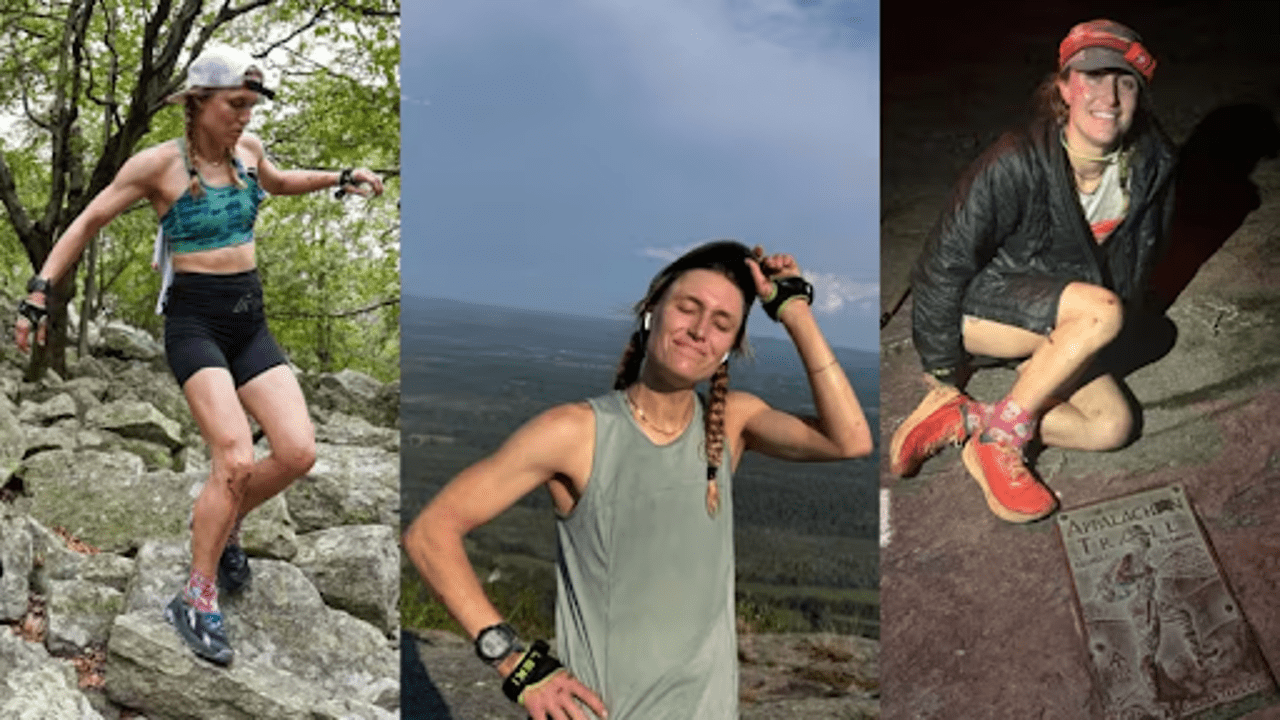
Tara Dower, a 31-year-old endurance runner from Virginia Beach, Virginia, has just broken the record for completing the Appalachian Trail, a challenge that typically takes around 40 days. Tara documented her journey on Instagram (@tower.dower).
Tara Dower, a 31-year-old endurance athlete from Virginia Beach, has achieved a groundbreaking feat, setting a new record for running the entire length of the Appalachian Trail (AT). This daunting 3,535-kilometer path, stretching from Maine’s Mount Katahdin to Springer Mountain in Georgia, is the world’s longest hiking-only trail. Dower’s relentless determination saw her cover this rugged route in a record-breaking 40 days, 18 hours, and 6 minutes, surpassing the previous mark set by Belgian Karel Sabbe in 2018 by 13 hours.
Despite the accolades for this extraordinary accomplishment, Dower remains humble. She attributes her success not only to her strength and endurance but also to her support team, especially her mother, who motivated her during the gruelling journey. Dower acknowledges the challenge, describing days of extreme physical and mental fatigue, exacerbated by injuries, adverse weather, and even hallucinations.
Setting out to conquer the AT’s highest and toughest mountains in the initial 10 days, Dower encountered almost unending rain, treacherous rocky paths, and painful injuries to her feet. Despite these obstacles, she pushed forward with an average daily mileage exceeding 90 kilometres—equivalent to 15 full marathons per week, on difficult mountainous terrain. This remarkable pace not only demands physical resilience but also a rare mental fortitude.
Dower’s path to success began with challenges of her own; her first attempt to complete the AT in 2017 ended after 129 kilometres due to a severe panic attack. Reflecting on her latest achievement, she views her 2017 experience as a stepping stone to her victory. “There were so many anxious moments on the trail,” she recalls, adding that reaching this point felt like a full-circle accomplishment.
Experts are awed by Dower’s grit. Canadian runner and coach Dr. Sasha Gollish at the University of Toronto admires Dower’s resilience, especially her ability to endure the intense mental fatigue that often accompanies physical exhaustion. Welsh-Canadian duathlete and endurance coach Hannah Spence echoed similar sentiments, noting that mental training is crucial for overcoming intense challenges. For Dower, it’s her mantra, “It never always gets worse,” that kept her moving, a reminder that even in tough moments, the pain and effort are temporary.
Interestingly, some researchers argue that women may have a natural advantage in extreme endurance events due to mental resilience. Dr. Gollish highlights that women could outperform men in ultra-long-distance feats due to their potential to resist mental fatigue better. Spence agrees, pointing out that the endurance developed by women through life experiences may contribute to a higher level of mental toughness, which can be a crucial factor in such demanding physical achievements.
Aside from the record, Dower aimed to make a difference for young girls. Through her run, she raised over $34,000 for Girls on the Run, a non-profit encouraging girls to pursue sports, which could influence them to be lifelong athletes. Dower’s journey stands as a powerful message of resilience and perseverance, encouraging young girls and inspiring runners everywhere.















